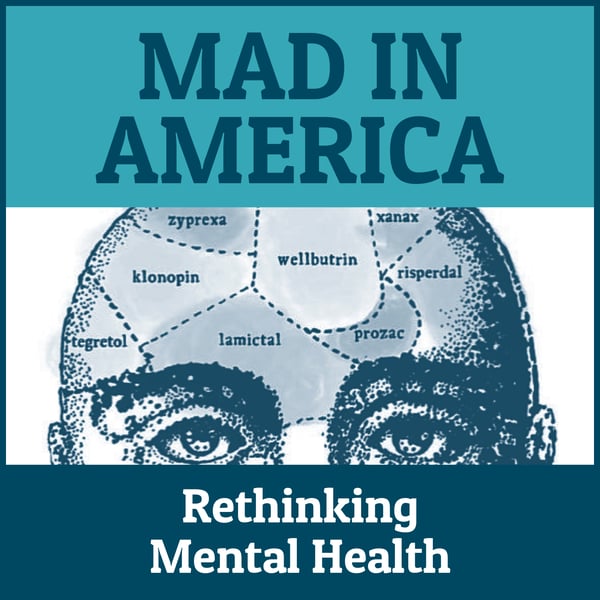Demedicalizing Depression: An Interview with Milutin Kostić
Mad in America: Rethinking Mental Health
Mad in America
4.8 • 201 Ratings
🗓️ 22 May 2024
⏱️ 43 minutes
🧾️ Download transcript
Summary
Milutin Kostić is a practicing Serbian psychiatrist trained in the tradition of biological psychiatry who has become a new figure in the critical psychiatry movement. Affiliated with the Institute of Mental Health in Belgrade, Serbia, he is currently a Fulbright scholar working alongside Lisa Cosgrove in Boston to challenge established norms in psychiatry and psychology.
Kostić utilizes his extensive training and traditional research methods to question the fundamental assumptions of his field. For example, Kostić critiques the flawed premises of genetics research in depression, arguing that it overlooks the heterogeneity of human experience. He uses analogies to illustrate how psychiatry often pathologizes normal human emotions, drawing parallels to how medical conditions are misunderstood when the context is ignored, like trying to treat the lungs alone in a society overrun by air pollution.
We will also discuss his latest study, which emphasizes the benefits of de-medicalizing experiences of depression rather than quickly resorting to diagnoses and subsequent treatments with medication or psychotherapy. His research also sheds light on the effects of biological narratives on patient perspectives, the complexities of drug dependency, and the profound impact of psychiatric diagnoses on individual identity.
***
Thank you for being with us to listen to the podcast and read our articles this year. MIA is funded entirely by reader donations. If you value MIA, please help us continue to survive and grow.
To find the Mad in America podcast on your preferred podcast player, click here
© Mad in America 2024. Produced by James Moore
Transcript
Click on a timestamp to play from that location
| 0:00.0 | Welcome to the Madden America podcast, your source for science, psychiatry, and social justice. |
| 0:14.9 | Militin Kostich is a practicing Serbian psychiatrist trained in the biological psychiatry tradition, |
| 0:22.1 | who is now making prominent contributions to the critical psychiatry movement. He is affiliated with the Institute |
| 0:27.1 | of Mental Health in Belgrade, Serbia, and is currently a Fulbright scholar, collaborating with |
| 0:31.7 | Lisa Kosgrove in Boston to challenge the norms in psychiatry and psychology. Costich draws on his training and uses traditional research methods in psychiatry to challenge the norms in psychiatry and psychology. Costich draws on his training and uses traditional |
| 0:39.0 | research methods in psychiatry to challenge the field's assumptions. For example, we will discuss his |
| 0:44.6 | latest study, which highlighted the benefits of demedicalizing depression experiences over quickly |
| 0:49.7 | diagnosing and referring patients to medications or psychotherapy. Costich's research also exposes the impact of biological narratives on patients' outlook, |
| 0:58.6 | the dynamics of drug dependency, and the impact of diagnoses on individual identity. |
| 1:04.0 | Militin, great to have you with us here today. |
| 1:06.1 | Thanks for coming on the Mad in America podcast. |
| 1:08.5 | Hello, thank you for having me. |
| 1:10.7 | To get us started, can you tell our listeners a little bit about your story, |
| 1:15.4 | how you were training in psychiatry and traditional biological psychiatry, |
| 1:20.0 | and then how you came to see yourself more as a critical psychiatrist over time? |
| 1:24.8 | I was trained in medical school, and all of medicine is biological. |
| 1:30.3 | I mean, wherever you go, it is the basis and humanistic aspects, social, philosophical, |
| 1:40.3 | are on the margins, are somewhat exceptional and we are made to think this causes that and is treated |
| 1:49.0 | by this. Not much critical thinking. I'm always fascinated, for instance, that until my doctoral |
| 1:56.6 | studies, I didn't hear once during my six years of medical school what a randomized |
| 2:02.6 | control trial is. |
| 2:03.6 | They just tell you, this is good, use this. |
... |
Please login to see the full transcript.
Disclaimer: The podcast and artwork embedded on this page are from Mad in America, and are the property of its owner and not affiliated with or endorsed by Tapesearch.
Generated transcripts are the property of Mad in America and are distributed freely under the Fair Use doctrine. Transcripts generated by Tapesearch are not guaranteed to be accurate.
Copyright © Tapesearch 2025.

